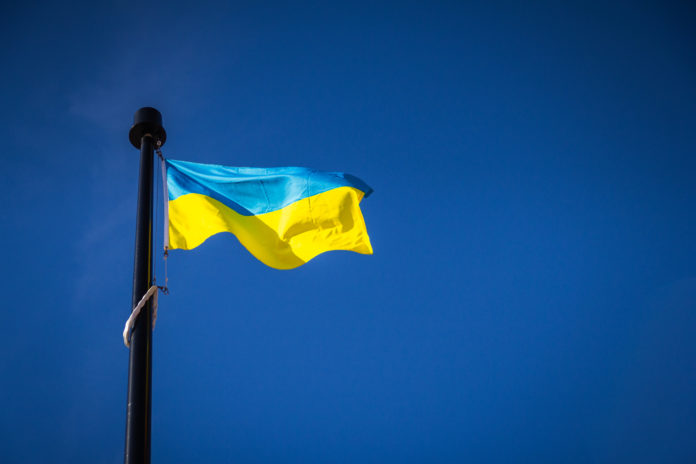
“Ukraine’s freedom has not yet perished, nor has her glory.”
The opening line of Ukraine’s national anthem serves as a reminder of the country’s history. For centuries, Ukraine has endured colonialism, genocide and oppressive regimes. That changed in 1991 when the Soviet Union crumbled and Ukraine embarked on its path towards independence, democracy and integration into Europe.
The last time there was war in Ukraine, my grandfather was there. In 1945, he escaped the Soviet and Nazi regimes, moved to Winnipeg and never went back home. Ever since I was a child, he shared stories of the war and the pains of occupation.
“Everybody always wanted a piece of Ukraine,” he’d often say. Last week, we were reminded of the truth of those words.
At 4:40 a.m. on Thursday, Feb. 24, the Russian Federation – with the support of the Republic of Belarus – launched a deeper invasion into its neighbour Ukraine.
The attack began with airstrikes on Ukraine’s largest cities. Soon after, the Russian and Belarusian armies commenced a ground invasion on three fronts: Ukraine’s North, East and South.
On Thursday, I sat helplessly watching the missiles fall on the cities whose names I learned at my Ukrainian elementary school: Kyiv, Kharkiv, Dnipro, Zaporizhzhia, Odesa and Lviv, where my relatives continue to live to this day. It was surreal.
But war is not new to Ukrainians. Russia did not invade Ukraine in 2022. It merely continued the invasion it started in 2014 when it stole Crimea and parts of the Donbas region. In the years since, Ukraine and Russia have been locked in a conflict that has claimed thousands of lives.
The blame for this war can be assigned to one man: Vladimir Putin. He has always wanted to restore the Soviet Union in an attempt to recreate its perceived former glories and expand his own power. Realizing that the West wouldn’t stop him after his interventions in Chechnya, Georgia and Syria, he set his sights on Ukraine, his perennial target.
Weak sanctions were never going to stop him. The stronger sanctions implemented this week are already exhausting the Russian economy, but that might not be enough. Had the West been serious about the threat Putin poses, this war may not have happened.
But the primary culprit is Putin himself, a tyrant who would stop at nothing to retain his own power. The war does not only affect Ukraine – it is merely the unfortunate victim in the struggle between democracy and authoritarianism. Putin not only declared war on Ukraine but on the entire rules-based democratic world order.
The fighting spirit of the Ukrainian people is strong. You may have seen videos of ordinary people taking up arms, making Molotov cocktails or training to defend their country.
These heroes follow in the spirit of the Revolution of Dignity – the 2014 revolution that ousted Ukraine’s pro-Putin president after citizens fought for their freedom in the streets of Kyiv. The Ukrainian people are still willing to defend their freedom and we must support them.
What can we, as students, do? For one, let’s check in on our Ukrainian friends. It takes a lot of mental energy to balance our daily activities with checking news reports and worrying about our loved ones’ safety.
Be careful with what you read and share. The Russian propaganda machine is actively trying to influence the narrative surrounding the war.
Please refrain from comparing this war to other wars. There will be a time for that, but that time is not now. Don’t try to score cheap political points at the expense of Ukrainian suffering, because false equivalencies are exactly what the Russian government wants in order to distract from its crimes.
If you’d like, you may donate to credible organizations providing humanitarian relief. If you’re a praying person, say a prayer for Ukraine. Let us not forget the thousands of young Russian and Ukrainian soldiers who have already died in a war they neither wanted nor deserved.
